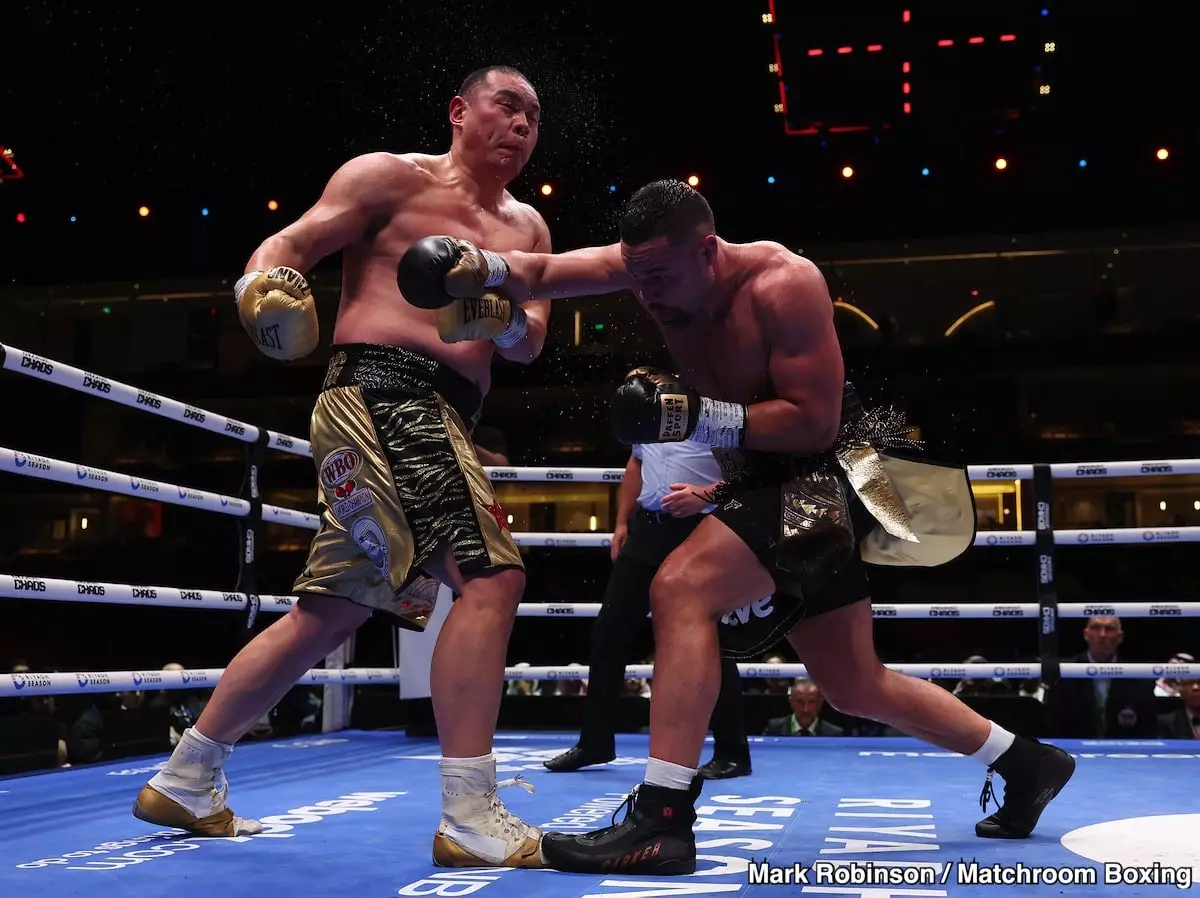As the heavyweight boxing scene heats up, the anticipation surrounding Joseph Parker’s potential showdown with IBF heavyweight champion Daniel Dubois is palpable. Coach Andy Lee asserts that Parker will be primed for a fight on February 22nd, provided that he does not engage Anthony Joshua beforehand. The dynamic landscape of heavyweight boxing means that each fight carries heavy implications, not just for the fighters but for the broader narrative of the division. If Parker and Dubois eventually step into the ring together, it promises to be a spectacle, drawing in fans eager for high-stakes boxing drama.
Meanwhile, promoter Eddie Hearn has indicated that Joshua is eyeing a rematch with Dubois but is opting to wait for the resolution of the December 21st matchup between Tyson Fury and Oleksandr Usyk. This uncertainty complicates the timelines for Parker and Dubois, as Joshua’s healing process from a recent loss will dictate the availability of one of heavyweight boxing’s most prominent figures. Growing up in the shadows of such titans, Parker must leverage this opportunity to establish his relevance in a rapidly evolving boxing landscape.
Joseph Parker has been on quite a journey, evolving from a powerful striker into a more strategic fighter reminiscent of former champion Chris Byrd. This transformation is crucial as he faces Dubois, who has made waves in the ring with an impressive record of 22 wins and 2 losses, and 21 knockouts. Dubois’ recent performances, especially his win against Joshua and clashes with other heavyweights, showcase his fierce punching power and tactical skills, posing significant threats to Parker.
However, Parker’s recent bout against Zhilei Zhang reveals both strengths and vulnerabilities. Although he snagged the WBO interim title, his victory was contentious, highlighted by two knockdown incidents during the match. Such challenges compel Parker to rethink his approach—his future encounters demand agility and laser-focused tactics rather than solely relying on brute strength. Drawing on the strategic movement that earned him wins over formidable opponents like Zhang and Deontay Wilder could prove critical. Still, he cannot underestimate Dubois’ determination and aggression; the latter will surely pursue victory with unrelenting fervor.
For Parker to mount a successful campaign against Dubois, he must craft a game plan that prioritizes evasion and counter-strategy. His earlier tactics of footwork and distance management will be pivotal in avoiding Dubois’ heavy artillery. However, relying solely on defensive measures could backfire; Parker needs to strike a balance between evasion and offensive maneuvers to create openings.
As the boxing community eagerly awaits developments, commentator Ade Oladipo’s remarks echo a growing sentiment: while Parker versus Dubois should be the priority, other matchups, like Dubois against Martin Bakole, are also intriguing. This additional context underscores the pressing nature of rankings and rivalry in heavyweight boxing, where opportunities can swiftly emerge or evaporate.
In sum, Parker faces not only the challenge of an adversary in Dubois but also the broader landscape of heavyweight boxing’s shifting allegiances and ambitions. As February 22nd approaches, both fighters—and their legacies—are on the line, and the result could irreversibly influence the trajectory of their careers.

